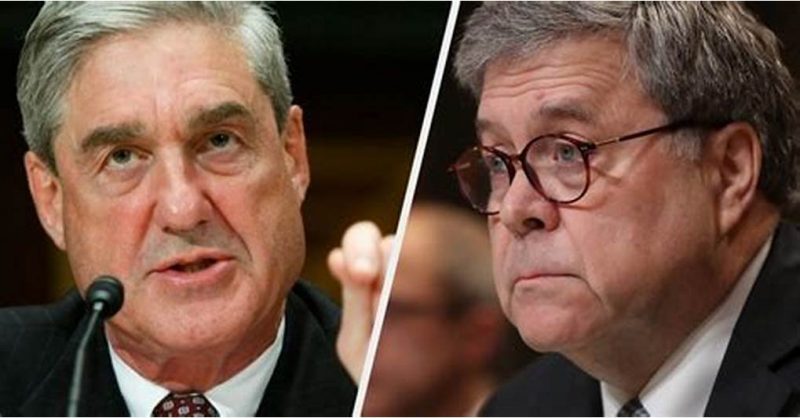His investigation was about protecting the actual miscreants in the collusion hoax.

Special counsel Robert Mueller testified before two House committees Wednesday, and his performance requires us to look at his investigation and report in a new light.
We’ve been told it was solely about Russian electoral interference and obstruction of justice. It’s now clear it was equally about protecting the actual miscreants behind the Russia-collusion hoax.
The most notable aspect of the Mueller report was always what it omitted: the origins of this mess.
Christopher Steele’s dossier was central to the Federal Bureau of Investigation’s probe, the basis of many of the claims of conspiracy between the Trump campaign and Russia.
Yet the Mueller authors studiously wrote around the dossier, mentioning it only in perfunctory terms. The report ignored Mr. Steele’s paymaster, Fusion GPS, and its own ties to Russians.
It also ignored Fusion’s paymaster, the Clinton campaign, and the ugly politics behind the dossier hit job.
Mr. Mueller’s testimony this week put to rest any doubt that this sheltering was deliberate. In his opening statement he declared that he would not “address questions about the opening of the FBI’s Russia investigation, which occurred months before my appointment, or matters related to the so-called Steele Dossier.”
The purpose of those omissions was obvious, as those two areas go to the heart of why the nation has been forced to endure years of collusion fantasy.
Mr. Mueller claimed he couldn’t answer questions about the dossier because it “predated” his tenure and is the subject of a Justice Department investigation. These excuses are disingenuous.
Nearly everything Mr. Mueller investigated predated his tenure, and there’s no reason the Justice Department probe bars Mr. Mueller from providing a straightforward, factual account of his team’s handling of the dossier.
If anything, Mr. Mueller had an obligation to answer those questions, since they go to the central failing of his own probe. As Florida Rep. Matt Gaetz asked Mr. Mueller, how could a special-counsel investigation into “Russia’s interference” have any credibility if it failed to look into whether the Steele dossier was itself disinformation from Moscow?
Mr. Steele acknowledges that senior Russian officials were the source of his dossier’s claims of an “extensive conspiracy.” Given that no such conspiracy actually existed, Mr. Gaetz asked: “Did Russians really tell that to Christopher Steele, or did he just make it up and was he lying to the FBI?”
Mr. Mueller surreally responded: “As I said earlier, with regard to Steele, that is beyond my purview.”
So it went throughout the whole long day. Republicans asked basic questions about the report’s conclusions or analysis, and Mr. Mueller dodged and weaved and refused to avoid answering questions about the FBI’s legwork, the dossier’s role and Fusion’s involvement.
Ohio Rep. Steve Chabot asked how the report could have neglected to mention Fusion’s ties to a Russian company and lawyer.
Mr. Mueller: “Outside my purview.” California Rep. Devin Nunes asked several questions about one of the men at the epicenter of the “collusion” conspiracy—academic Joseph Mifsud, whom former FBI Director Jim Comey has tried to paint as a Russian agent. Mr. Mueller: “I am not going to speak to the series of happenings as you articulated them.”
Then again, how could he? The Mueller team, rather than question the FBI’s actions, went out of its way to build on them.
That’s how we ended up with tortured plea agreements for process crimes from figures like former Trump aide George Papadopoulos and former national security adviser Michael Flynn.
They were peripheral figures in an overhyped drama, who nonetheless had to be scalped to legitimize the early actions of Mr. Comey & Co. Mr. Mueller inherited the taint, and his own efforts were further tarnished. That accounts for Mr. Mueller’s stonewalling.
The special counsel’s often befuddled testimony has predictably raised questions about how in control he was of the 22-month investigation or the writing of the report.
Yet in some ways it matters little whether it was Mr. Mueller calling the shots, or “pit bull” Andrew Weissmann, or Mr. Mueller’s congressional minder, Aaron Zebley.
All three spent years in the Justice Department-FBI hierarchy, as did many of the other prosecutors and agents on the probe.
That institutional crew early on made the calculated decision to shelter the FBI, the Justice Department, outside private actors, and leading Democrats from any scrutiny of their own potential involvement with 2016 Russian election interference.
That’s been the story all along. Mr. Comey hid his actions from Congress; the Justice Department and FBI worked overtime to obstruct Republican-led congressional probes; and Mr. Mueller and his team are clearly playing their own important role in hiding the truth. The Mueller testimony only highlights how important it is that Attorney General William Barr is finally pursuing accountability.
Write to kim@wsj.com.
Copyright ©2019 Dow Jones & Company, Inc. All Rights Reserved.
Appeared in the July 26, 2019, print edition.
This article was originally published by “WSJ”
The 21st Century
A related article:
What Mueller Was Trying to Hide
